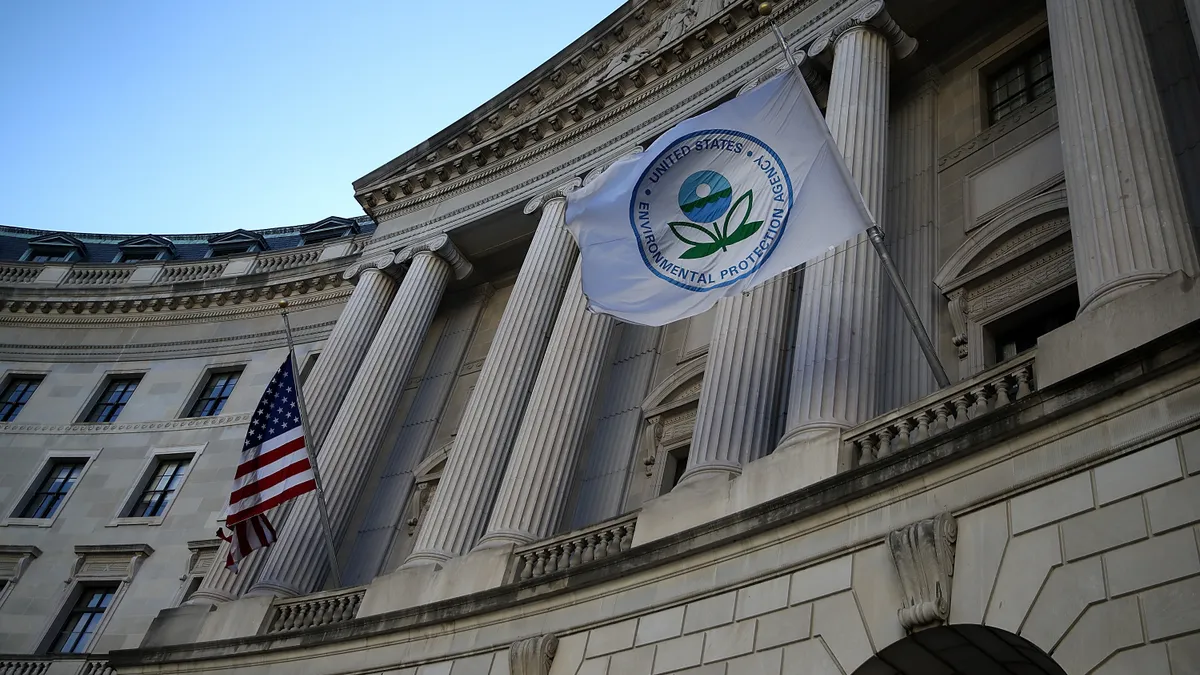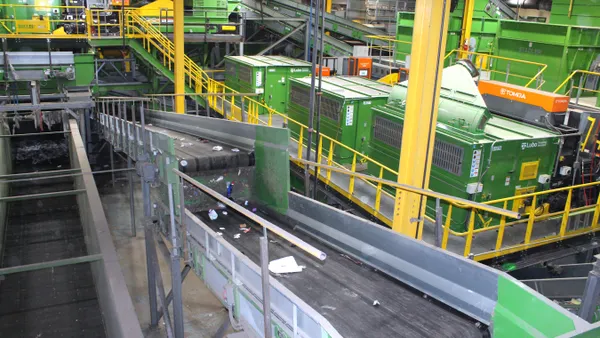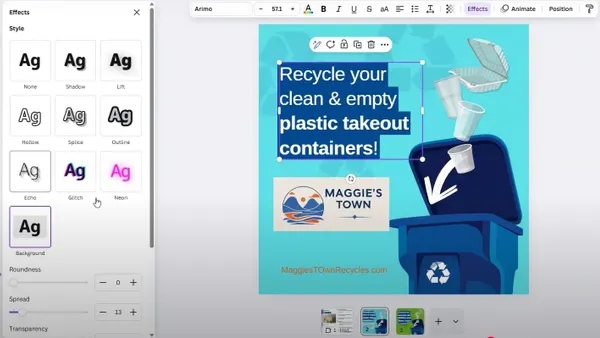Dive Brief:
- The Recycled Materials Association has filed a petition asking a federal court to review the U.S. EPA’s designation of certain per- and polyfluoroalkyl substances as hazardous under the Comprehensive Environmental Response, Compensation and Liability Act.
- ReMA says the designation has the potential to “significantly undermine the use of recycled materials” and create notable liabilities for recyclers “even though the industry does not intentionally purchase, generate, transport, or use PFOA or PFOS in its recycling processes.”
- The association submitted the filing on July 30 in the U.S. Court of Appeals for the D.C. Circuit. It follows similar petitions from other industry groups, including the National Waste & Recycling Association. NWRA filed its separate petition in June.
Dive Insight:
Though the EPA has made several PFAS-related decisions in recent months, the recycling and waste industries consider the agency’s hazardous designation for PFOA and PFOS as the rule that could have the biggest effect on operations.
That’s partly because the EPA is targeting such chemicals under CERCLA, also known as Superfund. When the EPA announced the final rule in April, it noted the move was meant to hold polluters accountable for PFAS pollution, but ReMA and other recycling and waste groups have long said such a decision could lead to unintended consequences that might force facilities to reject PFAS-containing material or face costly lawsuits.
During a June 27 webinar, David Wagger, ReMA’s chief scientist and director of environmental management, said the changing PFAS regulatory landscape and related mitigation costs might prompt some recyclers to charge for accepting certain materials.
ReMA, formerly known as the Insitute of Scrap Recycling Industries, considers recyclers to be passive receivers of PFAS-containing material, meaning they do not generate PFAS or have control over PFAS-containing items that enter their facilities.
“Recycling is essential to achieving global environmental goals for reducing carbon emissions and decreasing our need to extract scarce natural resources,” said ReMA President Robin Wiener in a statement accompanying the petition. “By labeling and regulating these chemicals as hazardous substances — which would potentially threaten recyclers’ ability to process products containing them — the EPA is potentially putting those environmental benefits at risk.”
That could have consequences for downstream industries such as the steel industry, ReMA said in the statement. The group noted that 70% of all steel manufactured in the U.S. is made from recycled steel that comes from sources such as scrapped automobiles and industrial production. ReMA also represents recyclers who manage other material streams such as plastics, electronics, paper and rubber.
NWRA, which filed a similar petition in conjunction with the U.S. Chamber of Commerce and Associated General Contractors of America, previously declined to comment directly on its petition. The organization has long voiced similar concerns about the hazardous substance designation’s impact on the waste industry as passive receivers.
In a related Statement of Issues document submitted July 15, those groups listed matters they want the court to consider under their petition. The list includes determining whether the EPA incorrectly interpreted Superfund when making the rule, whether the agency should have considered costs associated with setting the rule, and whether it violated the U.S. Constitution by “imposing retroactive liability,” among other issues. A hearing on that case has not yet been set.
Meanwhile, environmental groups represented by an attorney for Earthjustice have challenged NWRA's petition, saying the hazardous substance designation is a critical tool for holding polluters accountable for harming mainly lower-income neighborhoods and communities already exposed to other types of pollution.
A judge ruled on Thursday that ReMA’s petition be consolidated with the petition involving NWRA, U.S. Chamber of Commerce and Associated General Contractors of America.











